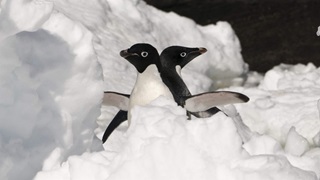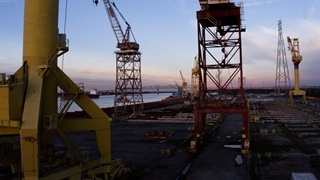Lund University Professor Daniel Conley Awarded 2010 Pew Fellowship in Marine Conservation
Three-year Project Studies Methods for Reducing Harmful Nutrients in the Baltic Sea
Daniel Conley, Ph.D., a professor in Biogeochemistry at the Department of Earth and Ecosystem Sciences at Lund University in Sweden, has been awarded a 2010 Pew Fellowship in Marine Conservation for his project to evaluate different solutions for reducing nutrients in the Baltic Sea that cause oxygen depletion and threaten the survival of marine life.
The Pew Fellowship in Marine Conservation is a prestigious program that gives recipients US$150,000 for a three-year scientific research or conservation project designed to address critical challenges facing our oceans. Dr. Conley's project will evaluate several strategies for diminishing “dead zones,” or areas in the ocean that lack enough oxygen, by removing chemical nutrients present in the water.
“The Pew Marine Fellowship gives me a unique opportunity to look at the problem of oxygen depletion from many angles and to scientifically evaluate the best solutions for solving the problem in the Baltic Sea and beyond,” said Dr. Conley. “I am honored to have been selected for this award.”
Dead zones in the Baltic Sea constitute the largest human influenced oxygen-deprived area in the world. Areas of widespread oxygen depletion can be directly attributed to excessive chemical nutrients, particularly nitrogen and phosphorus, entering the environment. Marine life often cannot survive the lack of oxygen and, if able, move to other areas, leaving an area largely devoid of life.
Dr. Conley will evaluate the effectiveness, cost and ecosystem impacts of several options for removing nutrients from the ocean and improving water quality. He will compare them with traditional reduction methods for fertilizers on land, a portion of which are flushed into the sea. Part of his grant will be used to communicate the results of his research to decision-makers and the public to promote better policies to protect marine species and ecosystems.
“Dead zones in our oceans and seas are perhaps some of the most visible and tangible examples of human impact on marine environments,” said Joshua S. Reichert, managing director of the Pew Environment Group. “Dr. Conley's project will apply the scientific scrutiny needed to help fix a global problem that is literally growing bigger each and every year.”
Dr. Conley earned his undergraduate degree at Tulane University, a Master of Science at the University of Wisconsin – Green Bay, and a Ph.D. in Chemical Oceanography from the University of Michigan. Originally from Ft. Lauderdale, FL in the United States, Dr. Conley eventually moved to Denmark and worked at the National Environmental Research Institute with the Danish Ministry of the Environment in Roskilde. He held a European Marie Curie Chair at Lund University from 2007-2009, where he is currently a professor. Dr. Conley is also a visiting scientist at the Cary Institute of Ecosystem Studies in Millbrook, NY in the United States.
Since 1996, the Pew Fellows Program in Marine Conservation has awarded 115 fellowships to individuals from 30 countries. The Pew Fellowships in Marine Conservation fund science and other projects that address critical challenges in the conservation of the ocean, including communication of project information to increase awareness of global marine issues. Through a rigorous nomination and review process, an international committee of marine specialists selects Pew Fellows based on the strengths of their proposed projects, including their potential to protect ocean environments. Five unique and timely projects led by outstanding professionals in their fields are chosen annually, targeting individuals who are mid-career. The program is managed by the Pew Environment Group, based in Washington, D.C.
More information about each of the 2010 Pew Fellows in Marine Conservation, including photographs and a Google Earth Tour of the recipients, is available at http://www.pewmarinefellows.org/2010.
The Pew Environment Group is the conservation arm of The Pew Charitable Trusts, a non-governmental organization that applies a rigorous, analytical approach to improving public policy, informing the public and stimulating civic life.








